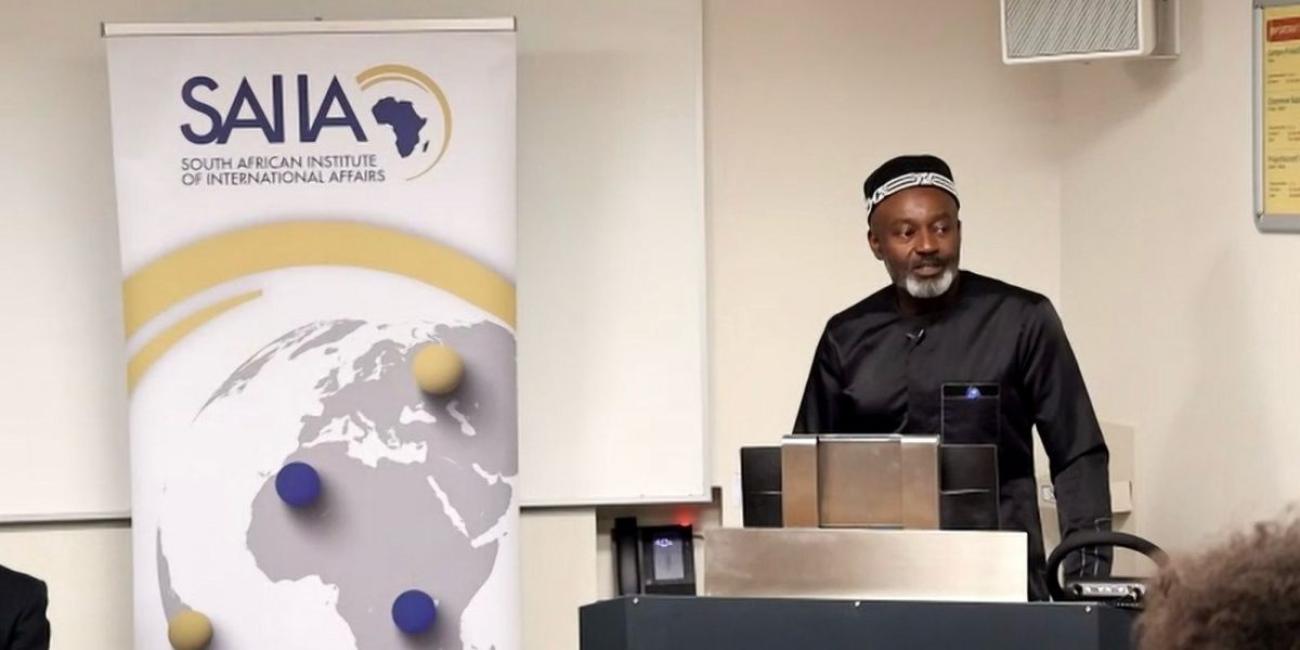Cape Town – The South African Institute of International Affairs (SAIIA) hosted a significant event by its Western Cape Branch which focused on the upcoming United Nations Summit of the Future to be held in September at the UN Headquarters in New York. The gathering brought together key stakeholders including students, teachers, members, and diplomats to discuss critical global issues impacting current and future generations and the Summit’s role in advancing multilateral solutions to addressing them.
As a leading international cooperation focused think tank in South Africa, SAIIA plays a crucial role in shaping the future by highlighting the potential of new technologies, showcasing the benefits of a just and inclusive financial system, and advocating for a purpose-fit peace architecture. This ensures that South Africa’s perspectives and priorities are well-represented in continental and global discussions, driving meaningful change and progress.
In his keynote address at the gathering, Mr. Nelson Muffuh, the head of the UN in South Africa and its Resident Coordinator, emphasized the urgency of the moment.
“The Summit of the Future is a chance to push progress on the issues that matter to you – and to us. A chance that cannot be missed. Our fight is one fight: creating a better world and a brighter future for all,” said Mr. Muffuh.
With the Summit of the Future just weeks away, the decisions made now will shape the world for generations. The Summit was proposed by UN Secretary-General António Guterres and endorsed by the General Assembly comprised of member states to tackle pressing challenges like global governance, turbocharging efforts to achieve sustainable development, financing climate action, propelling digital transformation for the benefit of all, as well as peace and security to silence the guns.
Mr. Muffuh highlighted five main reasons why the Summit is precedent setting: achieving the Sustainable Development Goals (SDGs), setting a new agenda for peace, harnessing technology, reforming governance architecture and financial systems, and empowering women and youth.
The Resident Coordinator underscored Africa’s evolving role in the UN system which includes not being seen through the lens of aid, but as continent that is emerging as a dynamic force in global peace, security, and development.
He said Africa’s priorities for the Summit include promoting peace and security, securing permanent African representation with veto power on the UN Security Council, ensuring delivery on financing commitments for sustainable development and climate action, and unlocking the potential of youth. Mr. Muffuh urged South Africa and the African stakeholders especially governments and young people to leverage their leadership to ensure the Summit’s success and the implementation of its outcomes.
The event highlighted the importance of intergenerational collaboration alongside multilateralism and international cooperation, serving as a bridge between global discussions and local realities. Efforts to promote the involvement of women and youth in shaping the future contribute to a more inclusive and participatory process, addressing the pressing challenges of our time. This serves as a powerful reminder of the collective responsibility the world shares in shaping a sustainable and equitable future, said the Resident Coordinator.


















